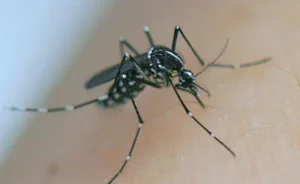Mpox Outbreak Reported in Gambia: What You Need to Know
A recent outbreak of Mpox in Gambia has raised concerns among health officials. Mpox, a viral disease belonging to the same family as smallpox, can spread to humans through contact with infected animals. However, human-to-human transmission is also possible, primarily through close physical contact.
Understanding Mpox
Mpox is caused by a virus and is characterized by a distinct rash that can resemble chickenpox. While typically less severe than smallpox, Mpox can still lead to serious complications, especially in individuals with weakened immune systems.
How Mpox Spreads
- Animal-to-human transmission: Contact with infected animals, such as rodents or primates, can lead to Mpox infection.
- Human-to-human transmission: Close physical contact with an infected person, including direct contact with skin lesions or bodily fluids, can spread the virus.
Symptoms of Mpox
Symptoms of Mpox can include:
- Fever
- Headache
- Muscle aches
- Swollen lymph nodes
- A rash that develops into blisters
Prevention and Treatment
Preventative measures include:
- Avoiding contact with animals that could carry the virus.
- Practicing good hygiene, such as frequent handwashing.
- Avoiding close contact with people who are infected with Mpox.
Treatment for Mpox typically involves managing symptoms and preventing complications. Antiviral medications may be used in severe cases.
Final Words
The Mpox outbreak in Gambia highlights the importance of vigilance and preventative measures to control the spread of infectious diseases. Staying informed and practicing good hygiene are crucial steps in protecting yourself and your community.




+ There are no comments
Add yours